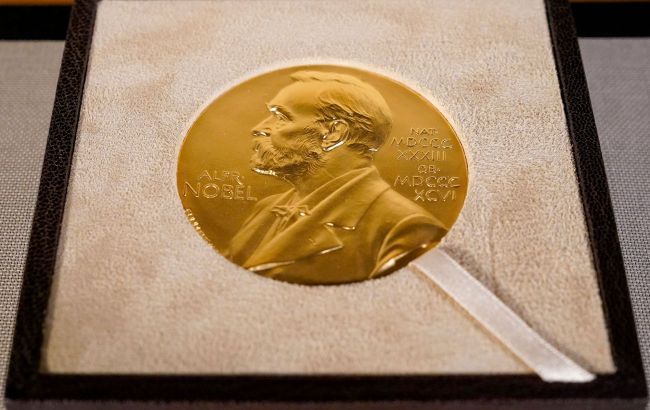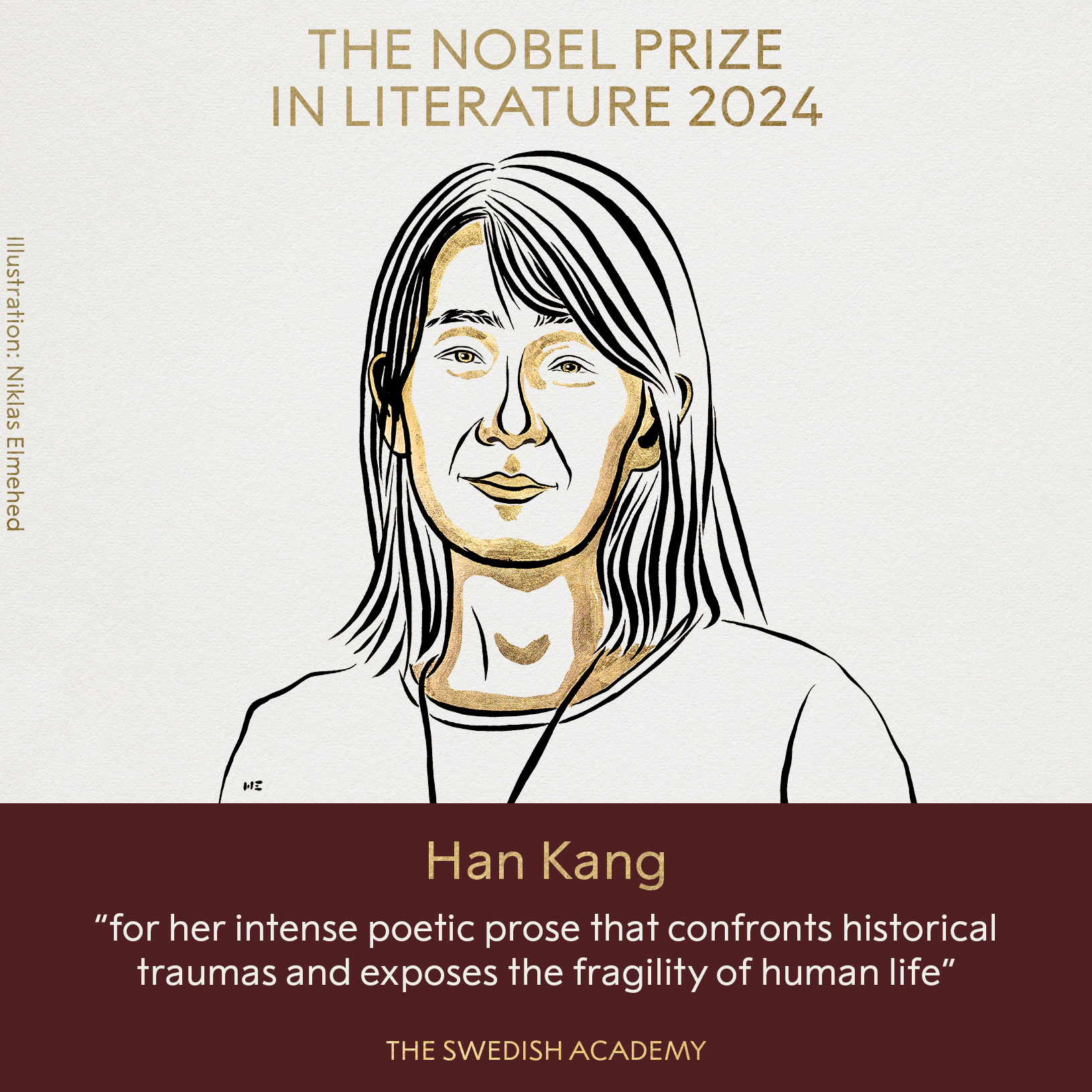Nobel Prize in Literature 2024 - Winner named
 The laureate of the 2024 Nobel Prize in Literature was announced (Photo: Getty Images)
The laureate of the 2024 Nobel Prize in Literature was announced (Photo: Getty Images)
On October 10, the Nobel Committee announced the laureate of the literature prize. It has been awarded to South Korean writer Han Kang "for her intense poetic prose that confronts historical traumas and exposes the fragility of human life."
What we know about the laureate
Han Kang was born on November 27, 1970, in Gwangju, South Korea. The daughter of South Korean writer Han Seung-won, she moved to Sayuri, one of the districts of Seoul, at the age of ten, which she fondly mentions in her novel The Vegetarian.
She studied Korean literature at Yonsei University. She has a brother, Han Dong-rim, who is also a writer. She began her writing career by publishing a poem in one of the winter issues of the periodical Literature and Society. The following year, she made her official literary debut when her short story The Scarlet Anchor won the Seoul Shinmun Spring Literary Contest.

Photo: South Korean writer Han Kang, who became a laureate of the Nobel Prize in Literature (x.com/NobelPrize)
Since then, the writer has received several other awards: the Yi Sang Literary Prize (2005), the Today's Young Artist Award, the Korean Literature Novel Award, etc. Since the summer of 2013, Han has been teaching creative writing at the Seoul Institute of the Arts and continues to publish new stories and novels.
In 2016, she was awarded the International Booker Prize for her novel The Vegetarian, which tells the story of a woman's resolute refusal to eat meat and the destructive consequences of that decision.
According to Han, she suffers from migraines, which, however, help her "keep her humble." She also claims that if it weren't for her migraines, she might never have decided to become a writer.
Last year's literature laureate
According to Alfred Nobel's will, the literature laureate should be someone who has created "the most outstanding work in an idealistic direction." Initially, the requirement was to consider only works created in the year preceding the award, but this has been changed so that works can be considered if their significance has only recently been recognized.
Interestingly, almost every year, the Nobel Prize in Literature has been awarded to one person. It has only been shared among two authors a few times: in 1904, 1917, 1966, and 1974.
In 2023, the award was given to Norwegian writer and playwright Jon Fosse "for his innovative plays and prose which give voice to the unsayable." He writes novels, short stories, poetry, and children's books, as well as essays and plays, and his works have been translated into over 40 languages.
Fosse's plays are staged in many countries around the world, including Germany, France, the USA, and Japan. He is considered one of the representatives of postmodernism in Norwegian literature. In his works, Fosse employs a unique technique that he calls "slow prose," in which rhythm is brought to the forefront, achieved through repetition.
2024 Nobel Week
This week, specifically on October 7, Nobel Week began, during which the laureates for the 2024 prize will be determined.
The Nobel Prize is one of the most prestigious international awards, given annually for outstanding scientific research, revolutionary inventions, or significant contributions to culture or societal development.
The prize amount varies depending on the income of the Nobel Foundation. This year, it will amount to 11 million Swedish kronor (approximately 1.1 million dollars).
Laureates in the following fields have already been determined:
- Medicine and Physiology: Victor Ambros and Gary Ruvkun "for the discovery of microRNA and its role in post-transcriptional gene regulation."
- Physics: John J. Hopcroft and Geoffrey E. Hinton "or foundational discoveries and inventions that enable machine learning with artificial neural networks."
- Chemistry: David Baker, Demis Hassabis, and John M. Jumper "for computational protein design" and "for protein structure prediction."

